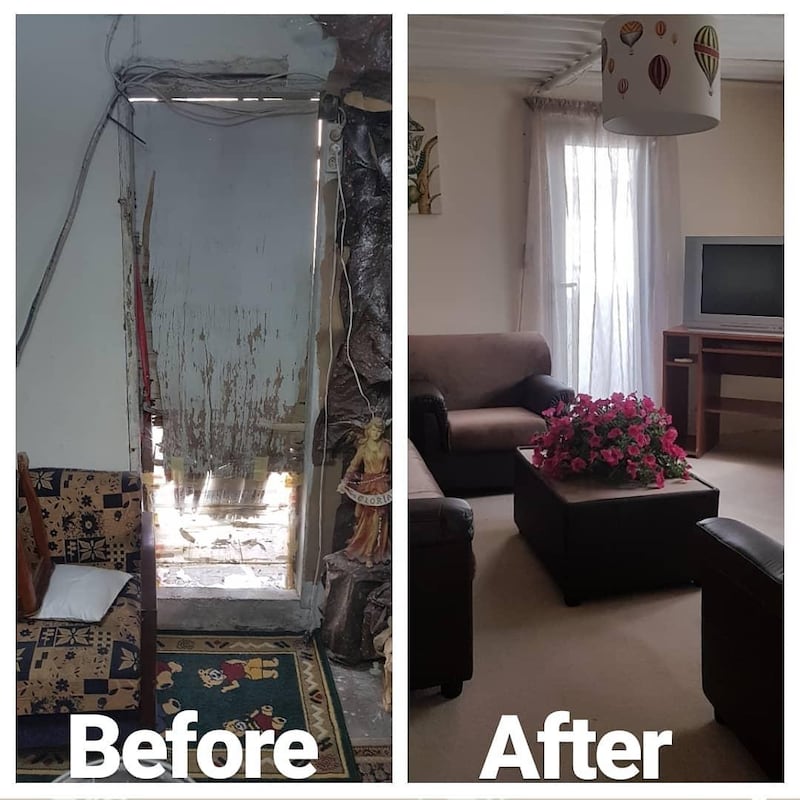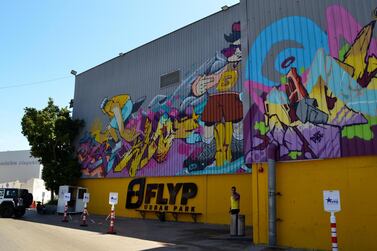Living in poverty in Beirut had always come with its challenges, but it wasn't until about a month ago that Rita, 48, actually reached breaking point. That was the day the ceiling of her decrepit apartment in Beirut's Karm El Zeitoun neighbourhood caved in.
"I make about $50 (Dh183.62) a month taking care of children and giving students lessons," Rita, who requested her family name not be published, tells The National. "It's very rare I can make more than that. I didn't know what to do."
Rita supports her brother and elderly mother, too. She grew up in a middle-class family, with her parents supporting her until her father (who was the family's main source of income) died a couple of years ago.
Facing crisis, Rita appealed to her friends and was connected to Maya Ibrahimchah, founder of Beit el Baraka, a local NGO with a growing name in the neighbourhood that serves the needs of the city's impoverished and elderly.
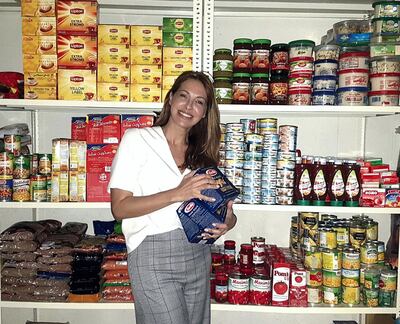
After visiting Rita's house and learning about the family's situation, Ibrahimchah offered the organisation's service. Previously, the NGO had completed 10 small-scale interventions – installing heating, fixing plumbing. This, however, was the first renovation it had taken on.
The emergency project would require more resources than Beit el Baraka had at the time, so Ibrahimchah opted to use Instagram to call on the NGO's supporters to help. Immediately after posting photos of Rita's living conditions, Ibrahimchah says she began receiving messages and calls from people willing to donate goods, services and even finances. By the second week of April, the apartment was completely rehabilitated: the caved-in ceiling repaired, broken window frames made new, toxic mould and mildew removed. "We were able to crowdfund all the resources in one week. Once that was done, it only took three days to finish the work," Ibrahimchah says.
For Beit el Baraka's founder, the quick success of its crowdfunding campaign was down to the sheer lack of awareness many Lebanese have about poverty in their country. "Many people in Lebanon are unaware of where poverty in the country lies," Ibrahimchah says.
“They think it only exists in the refugee communities, rural areas or the most stricken areas of Beirut. When they see impoverished Lebanese in neighbourhoods they are familiar with, they’re shocked.”
Joumana Baroudi-Eid, chief executive of Lead International Real Estate in Beirut, began following Beit el Baraka's work about half a year ago. Echoing Ibrahimchah's words, she says she was stunned to see that many Lebanese were living in dilapidated conditions in the same area in which she was working on projects worth well over a million dollars.
After seeing Beit el Baraka's call for help, Baroudi-Eid paid a team of construction workers and plumbers she knew to take part in the renovation effort. "I've been involved in luxury real estate for a long time," she says.
"When I saw the Beit el Baraka Instagram post showing the conditions of very poor elderly Lebanese people, especially in Achrafieh [one of the oldest districts of Beirut], I felt particularly bad knowing they were all living just five minutes away from apartments I was renting for thousands of dollars. I expected this kind of poverty to be elsewhere."
Achrafieh, in the east of Beirut, encompasses a number of neighbourhoods including Karm El Zeitoun. Much of the district is being gentrified, bringing new residents and business to the area. While various neighbourhoods within Achrafieh have become hotspots for Beirut's nightlife, poverty still exists in them.
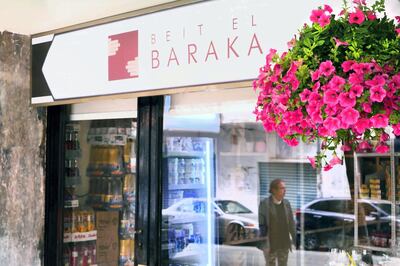
According to the 2016 United Nations Development Program (UNDP) poverty assessment, about 27 to 30 percent of individuals residing in Lebanon live beneath the national poverty line – a figure that markedly rose with the influx of more than 1 million Syrian refugees. The World Bank has estimated that about 200,000 additional Lebanese have categorised as living in poverty, with some 300,000 unskilled Lebanese youth facing unemployment.
At first, Ibrahimchah partnered with a group of nuns at a church in Beirut's Sassine neighborhood. She began offering up her time and resources to help several nuns support families in the neighborhood who were at "rock bottom" and without the support of the state or charitable organisations.
Finding that there was little help for impoverished Lebanese people, particularly those who had retired but who were still physically able to contribute to society, she decided to open her own organisation. Beit el Baraka, which was officially licensed as a local NGO in 2018, now supports more than 300 families in Beirut.
When applying for grants to sustain Beit el Baraka, Ibrahimchah quickly learnt that the majority of funds were targeted towards Lebanon's Syrian refugee community. Beit el Baraka's programmes were not applicable for many grants and other marginalised communities in the country were falling by the wayside. "I found that Lebanese people living in poverty, who have felt the immediate burden of the Syrian refugee crisis, had little resources in finding assistance. The international community has focused their aid to Lebanon on the refugee community, and the Lebanese government has not provided for its own people."
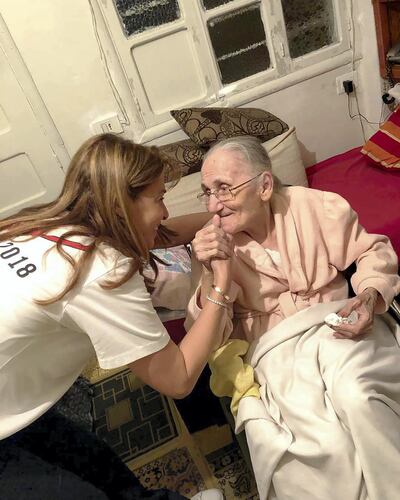
According to the Financial Tracking Service, a project by the United Nations Office for the Co-ordination of Humanitarian Affairs, international humanitarian aid sent to Lebanon has put emphasis on supporting the Syrian refugee community since 2012.
There is currently no national strategy to tackle poverty at a government level. In 2015, the peak of the refugee crisis in Lebanon, of the $1.3 billion in international humanitarian assistance given to Lebanon registered under the Financial Tracking Services, about $133m was not allocated specifically to aiding Syrians in Lebanon.
Ibrahimchah has therefore relied on her own personal network and social media to support Beit el Baraka in its own ways. In addition to home renovations, the NGO has recently opened a community supermarket also in Karm El Zeitoun. Here, beneficiaries of the organisation are able to shop for free. "Depending on the financial strain on each family, and the number of people per household, we determine the number of tickets they receive monthly, which cover all food, fresh fruit, vegetables and home items," Ibrahimchah says.
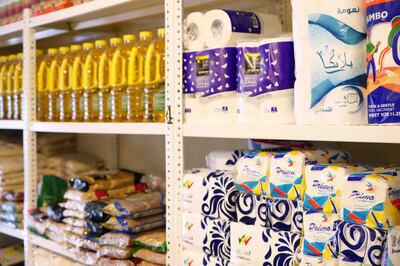
The Beit el Baraka market is fully stocked thanks to recent partnerships with several Lebanese foods suppliers that have agreed to donate imported packaged foods such as dried pasta, canned vegetables and household items that may be nearing expiry or have damaged packing. "In return, we thank them publically for helping support us, and then when our supporters go to the supermarket to do their personal shopping, we ask them to also post on social media showing that these specific brands are helping us."
G Vincenti & Sons, one of the suppliers donating their items to Beit el Baraka, immediately agreed to co-operate. "We understand the extent of economically deprived and elderly people who are left on their own by the government and have to rely on personal initiates like Maya's," Carlos Vincenti, owner of G Vincenti & Sons, says.
"We cannot make those people opulent, but can at least help them achieve the essentials of life and lead a decent life. Instead of considering them as a project to help, Beit el Baraka has viewed them as people to love and respect. And we are just honoured to be partly contributing to such."
So far, Ibrahimchah's outreach strategy has proved successful, and now, a long-term plan is in the works to ensure its longevity.
"We have to work on fixing this issue affecting the Lebanese in our society. Many are still able to give back to society. Even though they're at the age of retirement, they're still physically and mentally fit," she says.
"If we can give them their dignity, and help them, they can regain the ability to support themselves."
